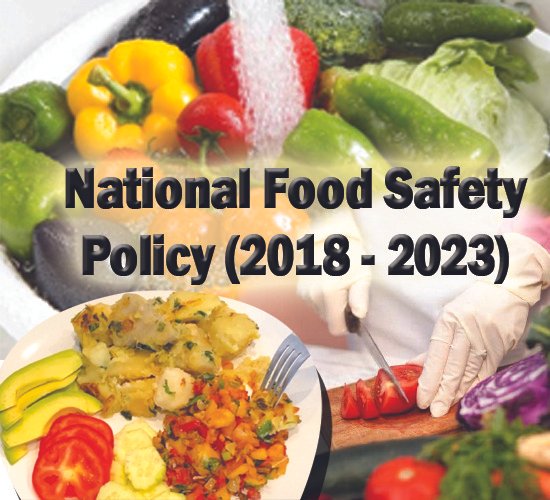A food safety policy is a critical document developed by organizations involved in handling, producing, distributing, and serving food. It outlines a commitment to maintaining high standards of food safety and quality to prevent foodborne illnesses and adverse health effects. By detailing guidelines and procedures, a food safety policy ensures that food is handled, stored, and prepared in a manner that protects public health and fosters consumer trust.
Why is a Food Safety Policy Essential?
A well-crafted food safety policy is indispensable for any organization involved in the food industry. It showcases a commitment to food safety and establishes a framework for maintaining high standards. Here’s why having a food safety policy is crucial:
- Demonstrates Commitment: It signals to customers, regulators, and employees that the organization prioritizes food safety and quality, setting a clear direction for achieving these goals.
- Enhances Reputation: A robust food safety policy helps build and maintain a positive reputation by preventing incidents that could damage the brand and lead to negative publicity.
- Ensures Compliance: It helps organizations comply with legal requirements, thereby avoiding fines, penalties, or legal action that could impact their ability to operate.
- Reduces Risk: By implementing preventive measures, a food safety policy minimizes the risk of contamination, food poisoning, and other adverse events, protecting both consumers and the business.
- Operational Efficiency: Consistent adherence to food safety protocols streamlines operations, reduces disruptions, and minimizes food wastage.
- Strengthens Supplier Relationships: Extending food safety standards to suppliers and partners ensures that all components of the food supply chain meet quality and safety requirements.
- Provides Employee Guidance: Clear guidelines and regular training ensure that employees understand and follow best practices for food handling, hygiene, and safety.
Benefits of a Food Safety Policy
Implementing a comprehensive food safety policy offers several advantages:
- Consumer Trust and Loyalty: Demonstrating a commitment to high standards in food safety fosters consumer confidence, leading to increased loyalty and positive word-of-mouth.
- Regulatory Compliance: Ensuring adherence to food safety regulations helps avoid legal complications, fines, and other penalties that can arise from non-compliance.
- Reputation Protection: A strong food safety policy helps safeguard the company’s reputation by preventing food safety incidents that could lead to damaging media coverage and customer loss.
- Operational Improvements: Consistent application of food safety practices enhances overall efficiency, leading to smoother operations, reduced disruptions, and lower food wastage.
- Supplier Assurance: By setting standards for suppliers, businesses ensure that all ingredients and materials used meet safety and quality expectations.
- Employee Training and Development: Providing clear guidelines and regular training helps employees perform their roles effectively, maintaining high standards of food safety.
Key Components of a Food Safety Policy
A well-defined food safety policy typically includes the following elements:
- Commitment to Food Safety
- Statement: Demonstrates the organization’s dedication to upholding the highest standards of food safety to protect customer health and ensure product quality.
- Responsibilities
- Roles: Clearly defines the responsibilities of various individuals and departments in maintaining food safety. This includes senior management, site managers, supervisors, and employees.
- Examples:
- Senior Management: Monitor compliance, ensure proper food safety practices, provide necessary training, and address any food safety issues.
- Site Managers and Supervisors: Lead by example, ensure adherence to food safety procedures, and manage staff effectively.
- Employees: Follow hygiene practices, report problems, and work within their training scope.
- Risk Assessment
- Process: Identifies and evaluates potential food safety hazards at every stage of the food production process. Often includes a Hazard Analysis Critical Control Points (HACCP) system, either as part of the policy or as separate documentation.
- Training
- Commitment: Ensures all employees receive appropriate training on food safety, hygiene, and handling practices to maintain high standards and comply with regulations.
- Regulatory Compliance
- Adherence: Details how the organization will meet relevant food safety regulations and standards to ensure compliance and avoid legal issues.
- Policy Endorsement
- Approval: Typically signed by a senior management member to affirm the organization’s commitment to implementing and maintaining the policy.
Key Phrases for a Food Safety Policy
Effective food safety policies often include specific phrases that convey commitment and adherence to standards:
- “Our policy is to provide high-quality food products and services, ensuring all food is handled, stored, and prepared safely in accordance with the Food Safety Act 1990 and relevant regulations.”
- “We will identify and control hazards critical to food safety, implementing effective monitoring procedures.”
- “Our premises, facilities, and equipment will be maintained to prevent food contamination.”
- “We will assess and provide training for all employees to uphold high standards of personal hygiene and food safety.”
- “We will periodically review and update our hazard analysis and control systems to comply with legislation and business changes.”
- “The successful implementation of this policy relies on the commitment and cooperation of all staff members.”
Summary
In conclusion, a food safety policy is essential for ensuring the safety and quality of food products, protecting public health, and maintaining a company’s reputation. By defining clear guidelines, responsibilities, and procedures, a food safety policy helps organizations comply with regulations, manage risks, and foster consumer trust. A strong commitment to food safety not only supports operational efficiency but also enhances overall business success.



